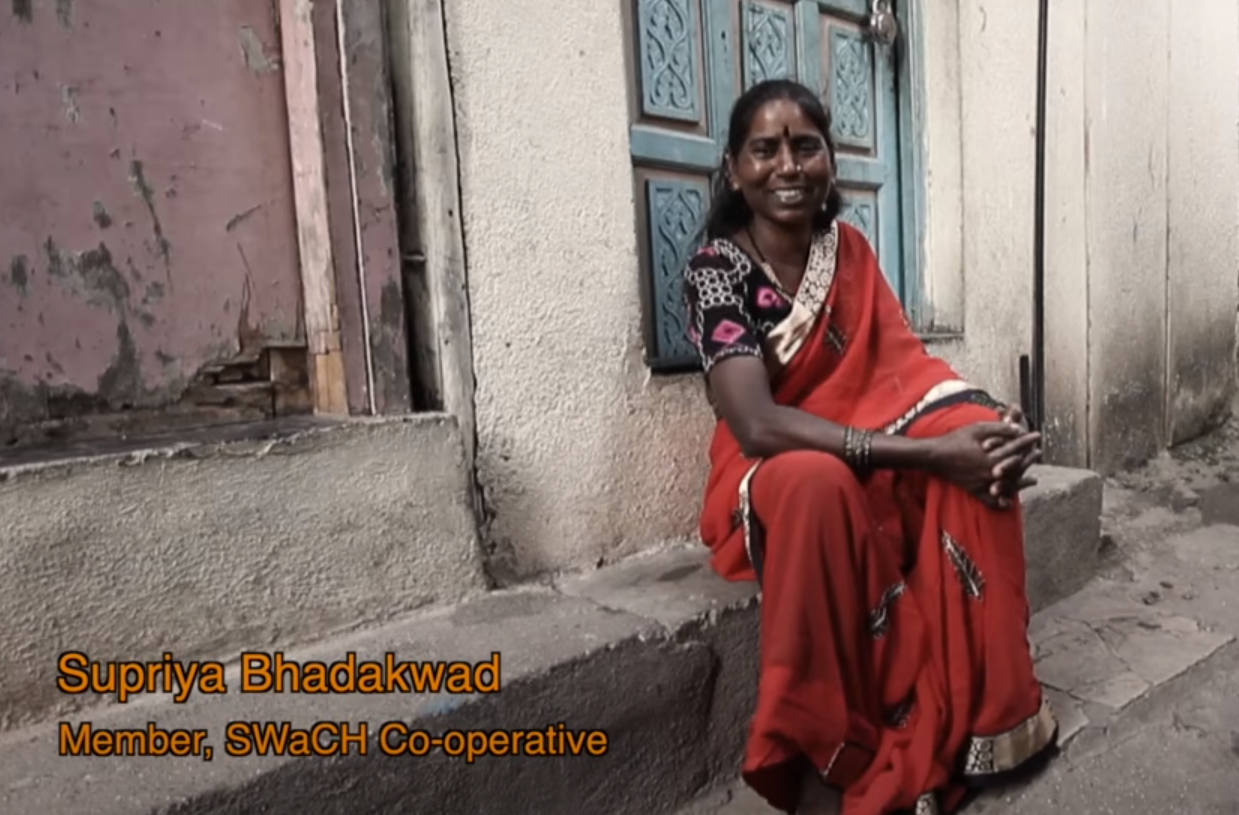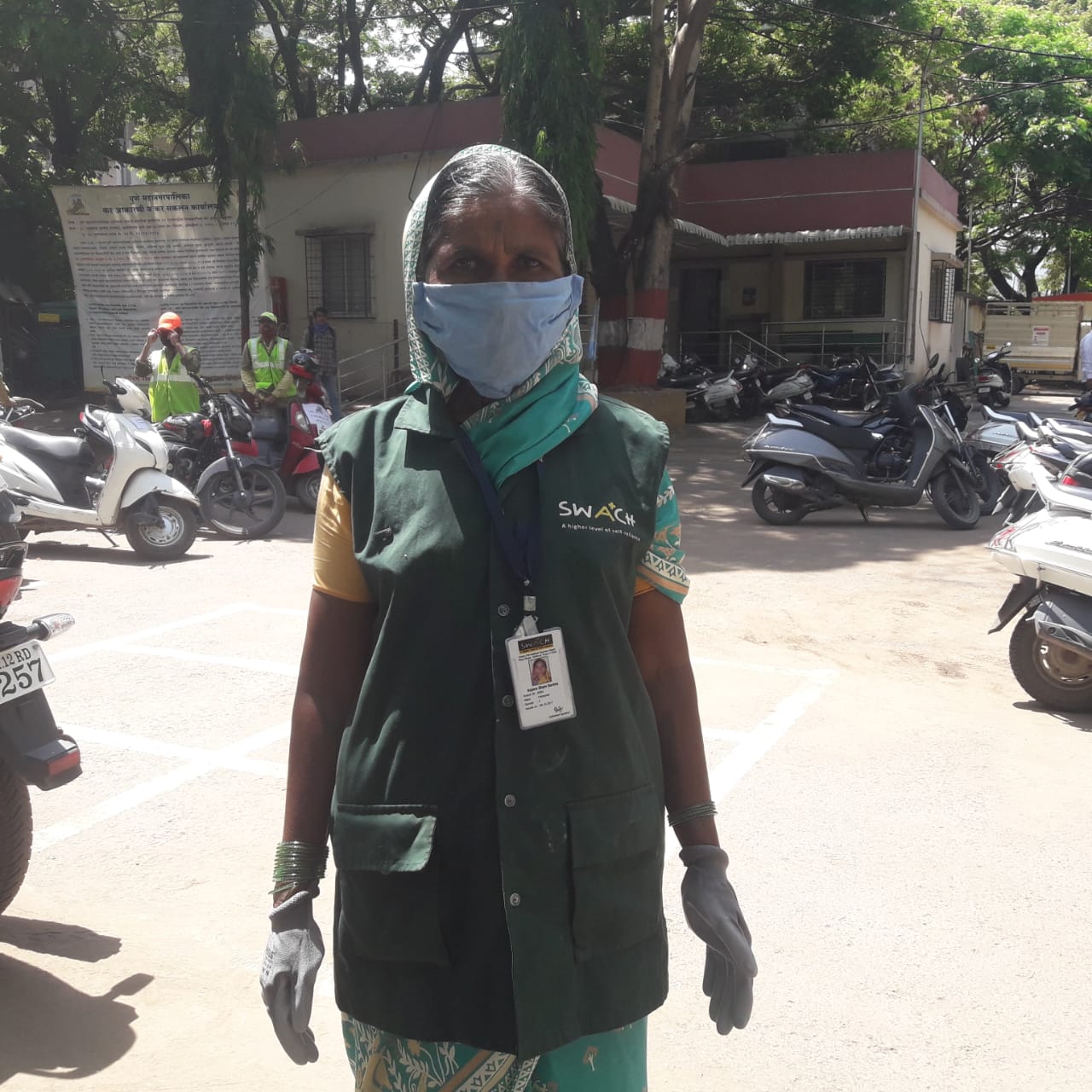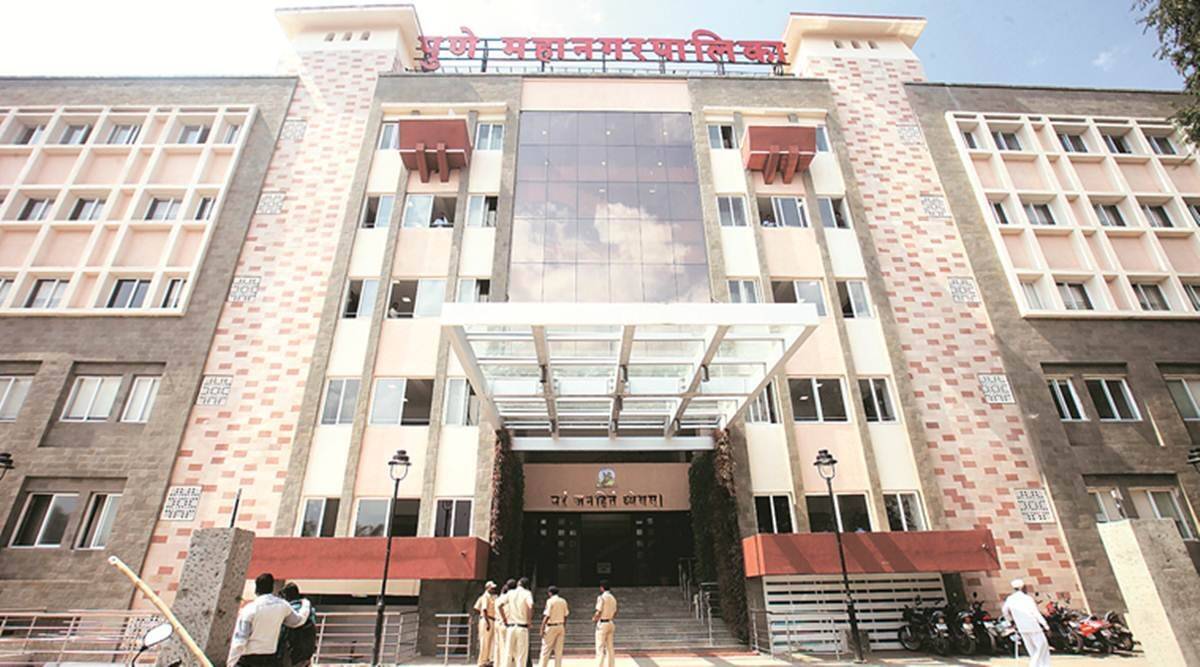WFH, Stay at home, masks for all – while all this is being discussed, most have the convenience of using a toilet at home or work and do not have to think about toilets and human waste. But what would you do if you found human waste at your work? “As people are asked to stay at home, several public conveniences are no longer accessible to them. People have reduced the use of public transport and all public facilities. Waste collection is something that I can continue doing to ensure the safety of my city and its people. I understand how important this is. But what about our dignity and health? Is there no consideration for that?” asks Anil Pawar who works in the Tadiwala slums of Pune.
A few days ago when he picked up the waste, and was sorting it so he could send it with the PMC vehicle, he was aghast to find adult human feces wrapped in paper. And to his dismay, it was not a stray incident. With the intervention of the SWaCH coordinator and with repeated requests to the local PMC staff, the toilets were cleaned more often, and yet, the incidents continue. I wish people would show some respect for us as human beings” he says. Anil provides waste management services to 225 slum homes in the area. Slum pockets have more of wet waste and despite the issues with non- payment of user fees and irregular income, Anil has been consistent. Despite the fear of the corona virus and the vulnerability, he continues to work in the slum areas so that the health of all those residents does not suffer from piled up waste. The barricades mean that he has to work harder and carry the waste farther to ensure that the PMC vehicles can take it away.
Add to the hard work, there is the indignity of finding adult human feces in the waste. “We are trying to ensure that even diapers and sanitary waste is wrapped and marked separately with a red dot. How can one human do this to another human being” he asks. Instead of trying the work of essential workers like us more difficult and confining us to our areas or asking us to leave our families and move so we can work, it would go a long way if everyone was sensitized to why essential services matter and how to ensure they can be delivered smoothly”, he says.







